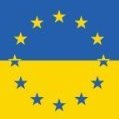NRC set to see hot debate on directly elected Thai PM
-
Recently Browsing 0 members
- No registered users viewing this page.
Announcements
-
Topics
-
Latest posts...
-
43
Russian Disinformation Campaign Targets Kamala Harris with False Accusations
Go ask staff and than we’ll talk about it , if they give approval ! Your comment is to topic a reference in fact checking the debate . Topic Russian Disinformation Campaign Targets Kamala Harris with False Accusations -
5,243
-
51
PM Faces Pressure Over Thaksin's Alleged Hospital Fake-Out
Daddy and daughter departing to Dubai soon. -
0
Trust those who put their $$ where their mouth is - the bettors.
Amongst the most accurate predictions for the 2020 presidential election were those by a data scientist from Northwestern University. Gamblers were his primary source. https://economictimes.indiatimes.com/news/international/us/will-there-be-a-kamala-harris-landslide-in-november-this-data-scientist-who-predicted-the-last-u-s-elections-says-yes/articleshow/113494981.cms?from=mdr OR https://fortune.com/2024/09/18/trump-vs-harris-election-odds-who-will-win/ paywall on that one 😪 but circumvention is possible -
43
Russian Disinformation Campaign Targets Kamala Harris with False Accusations
If you had a choice between Trump and a donkey, who would you choose? -
15
-
46
Best Song of Past 100 Years? Your Vote?
Absolute nonsense not every body is American some of us are brought up in different countries I brought up in Europe I never ever heard that song just American B/S -
38
Police checks in Thailand
I believe that may be the case but was also told its not a spent conviction so will not appear in a background check, which is what they check for. Things like warnings, fines and so on don't appear, that's what I was told but I have no idea. I didn't go to prison, I just paid a fine. It was done in like 2 minutes at the court then I went home. One friend said its far too small, don't worry but I have no idea as I have never had anything like this happen before. -
43
Russian Disinformation Campaign Targets Kamala Harris with False Accusations
How is it off topic? Because it is the truth or because you don't like it? -
19
Illegal Foreign Guide Assaults Chinese Tourist at Jewelry Store
Same in Bangkok. AFAIK Chinese and Koreans for sure. I even heard there're auctions running for a buses w/tourists for a day. And than they have to squeeze their money back. Look at JTC - there are lots of them (tours with guides) -
43
Russian Disinformation Campaign Targets Kamala Harris with False Accusations
Whats musk up to? What are free speech lie factories?- 1
-

-
43
Russian Disinformation Campaign Targets Kamala Harris with False Accusations
the Russian agents are all about promoting "free speech" and everything, but when they face bans because of disinformation they get all upset at "fascist liberals". Trump's friends and the Russians of course need to keep the "free speech" lies factory working. Musk's purchase of Twitter makes sense now, but now we also know what he is up to.- 1
-

-
46
Best Song of Past 100 Years? Your Vote?
"Best Song of Past 100 Years? Your Vote?" Shaddap You Face. -
44
Texas Chicken Closing.....
After reading here that they are closing down we visited Texas Chicken this evening, Jomtien. Never seen so many people there before, this location is usually quite empty with fast order service. Today it took us over 30 minutes to order and get our food. Looks like the news are spreading that they’ll soon be gone. -
15
Sean “Diddy” Combs to Remain in Custody Ahead of Sex Trafficking Trial
Trump was friends with everyone mostly because he was rich & famous! Im sure if anything happened it would be out by now! “Names of figures that were previously associated with Epstein, such as Prince Andrew and former presidents Donald Trump and Bill Clinton, were mentioned in the court documents, but there was little new information outside of what was already known to the public”. https://time.com/6552063/jeffrey-epsteins-unsealed-court-documents/
-
.png.3b3332cc2256ad0edbc2fe9404feeef0.png)


.thumb.jpg.9bcb39176551b2c1639c71549f3782b4.jpg)










Recommended Posts
Create an account or sign in to comment
You need to be a member in order to leave a comment
Create an account
Sign up for a new account in our community. It's easy!
Register a new accountSign in
Already have an account? Sign in here.
Sign In Now